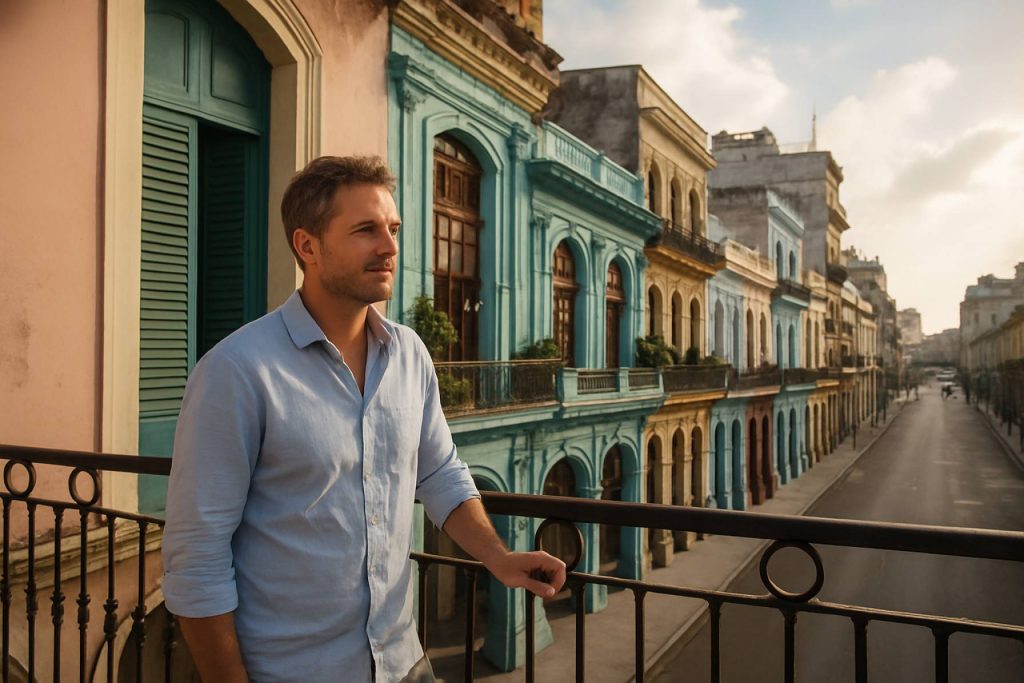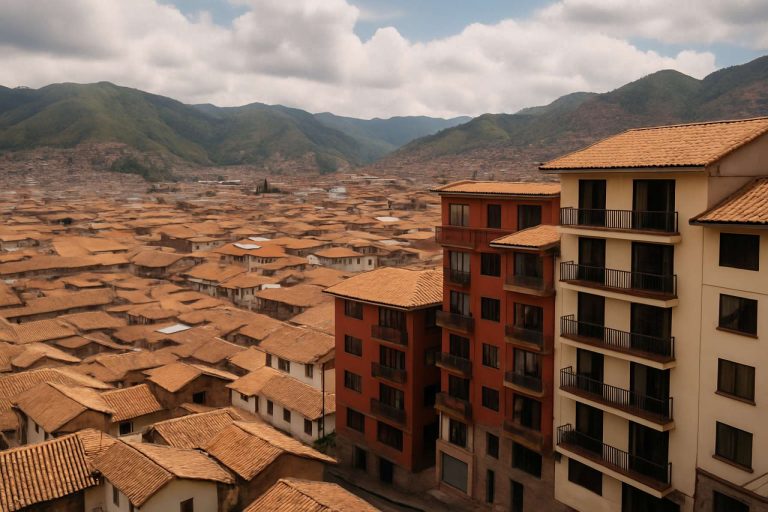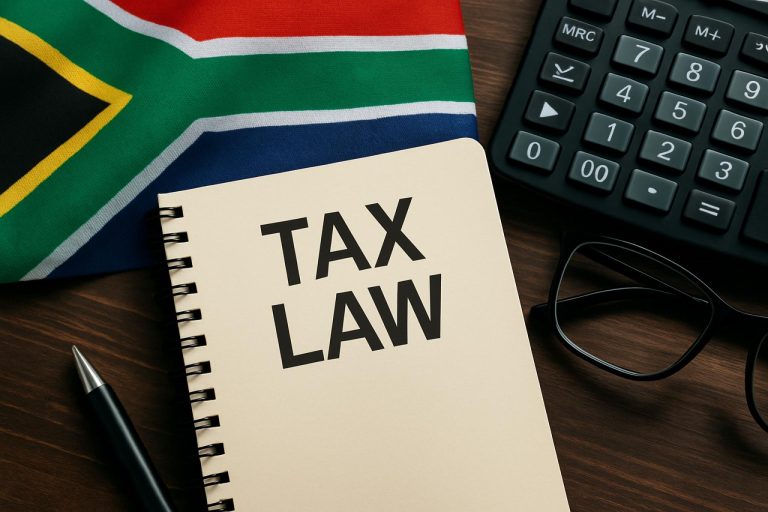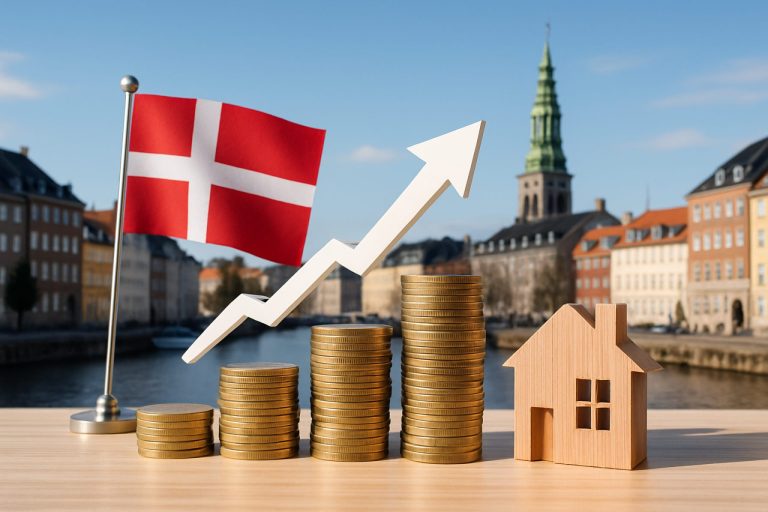
Table of Contents
- 1. Executive Summary: The State of Cuban Real Estate in 2025
- 2. Key Market Statistics and Trends (2024–2025)
- 3. Legal Framework: Property Rights, Ownership, and Foreign Investment Regulations
- 4. Taxation and Compliance: Navigating Real Estate Laws in Cuba
- 5. Government Initiatives and Policy Updates (Referencing gob.cu, minjus.gob.cu)
- 6. Demand Drivers: Tourism, Migration, and Economic Factors
- 7. Regional Hotspots: Havana, Varadero, and Up-and-Coming Areas
- 8. Risks and Challenges: Market Volatility, Political Landscape, and Compliance
- 9. Future Outlook: Projections for 2026–2030
- 10. Expert Recommendations and Resources (Official Cuban Authorities & Institutions)
- Sources & References
1. Executive Summary: The State of Cuban Real Estate in 2025
As of 2025, the Cuban real estate market remains in a state of cautious evolution, shaped by both regulatory changes and persistent economic constraints. Historically, the buying and selling of private property in Cuba was strictly prohibited until the introduction of Decree-Law No. 288 in 2011, which allowed Cuban citizens and permanent residents to legally own and transfer residential real estate for the first time since the Revolution. This legal framework still underpins the sector, with transactions confined primarily to private homes and apartments; commercial property ownership and foreign direct participation remain highly restricted.
Officially, only Cuban nationals and permanent residents can own property, and there is no open market for foreigners except in tightly controlled tourism developments. Foreign investment in real estate is permitted solely via joint ventures with the state, typically for hotel and tourism projects, under the supervision of the Ministry of Foreign Trade and Foreign Investment. Despite periodic discussions regarding further liberalization—such as proposals to allow Cubans abroad to buy property or expand foreign participation—no substantial legislative changes have advanced as of early 2025.
The sector’s compliance landscape is defined by rigorous documentation requirements, including proof of ownership, registration with the Ministry of Justice (Registro de la Propiedad), and formal notarization of transactions. Market transparency remains limited, with property valuations and transaction data not systematically published by government authorities. However, estimates from the National Office of Statistics and Information in recent years indicate that private home sales—primarily in Havana and selected provincial cities—numbered in the tens of thousands annually, albeit with significant regional disparities.
Challenges persist. Many properties require substantial renovation, and the dual-currency system’s gradual unification has complicated price stability and investment decisions. Additionally, ongoing US sanctions and the inclusion of Cuba on the US State Sponsors of Terrorism list restrict access to international financing and deter potential foreign investors.
Looking ahead, the Cuban real estate market is expected to remain largely insular through 2025 and the immediate years beyond. While some incremental regulatory adjustments are possible, substantive reforms to open the market to broader foreign participation or ease compliance requirements are unlikely in the short term. The sector’s trajectory will depend on domestic economic reforms, external geopolitical shifts, and the pace of digitalization in property registration and transaction processes. For now, the market’s growth and diversification remain constrained by policy and economic realities, despite ongoing demand for both residential upgrades and new investment opportunities.
2. Key Market Statistics and Trends (2024–2025)
The Cuban real estate market has undergone significant transformation in recent years, particularly following the 2011 reforms that allowed Cuban citizens and permanent residents to legally buy and sell residential properties for the first time since the 1959 revolution. As of 2025, the market continues to reflect the outcomes of these legal changes, but remains characterized by unique features, substantial regulation, and significant limitations for foreign investors.
According to the Ministerio de la Construcción, Cuba’s housing stock is estimated to be around 4 million units, with a chronic deficit of approximately 800,000 homes. The government has prioritized housing construction and renovation in its annual plans, but progress is hampered by constraints on materials, funding, and the impact of the ongoing U.S. sanctions. In 2024, official data indicated that roughly 20,000 new homes were completed, falling short of the annual targets and reflecting persistent supply shortages.
A key trend in 2024–2025 is the continued activity in the informal real estate market. Although private sales between Cuban citizens are legal, transactions must be registered and notarized through the Ministerio de Justicia and reported to the Oficina Nacional de Estadísticas e Información. Compliance requirements include proof of property ownership, tax payments, and restrictions against multiple property ownership, except for cases of inheritance.
Foreigners remain largely prohibited from directly purchasing real estate, except in specially authorized developments or through long-term leases in joint ventures with state entities, as regulated by Ley No. 118/2014 de la Inversión Extranjera (Gaceta Oficial de la República de Cuba). In 2025, there are limited approved projects—mostly in tourism zones—where foreign investment is permitted, but these projects are closely monitored and subject to government approval.
Looking ahead, the outlook for Cuba’s real estate market in the next few years remains cautious. The government is seeking to attract more foreign capital through mixed-use tourism and residential developments, but significant legal and financial barriers persist. The ongoing housing deficit, high demand for renovation, and limited access to mortgage financing shape a market that is likely to see continued gradual change rather than rapid liberalization. Compliance with evolving property laws and registration requirements will remain critical for both Cuban citizens and foreign entities navigating this complex regulatory environment.
3. Legal Framework: Property Rights, Ownership, and Foreign Investment Regulations
Cuba’s real estate legal framework has undergone significant changes in recent years, reflecting gradual reforms in property rights and foreign investment regulations. The Cuban Constitution of 2019 affirms state ownership of land, while recognizing limited forms of private property and authorizing citizens to own their homes and transfer property via sale, exchange, donation, or inheritance (Asamblea Nacional del Poder Popular). However, all land technically remains state-owned, with private ownership pertaining primarily to buildings or improvements.
A landmark change occurred with the enactment of Decree-Law No. 288 (2011), which modified the Housing Law to allow Cuban citizens and permanent residents to legally buy and sell residential real estate for the first time since the Revolution. This led to a surge in property transactions, with over 400,000 real estate transfers reported between 2011 and 2023 (Ministerio de Justicia de la República de Cuba). However, strict compliance measures remain: only natural persons with permanent residence in Cuba may participate, and multiple home ownership is prohibited except in cases of vacation homes.
Foreign investment in Cuban real estate is more restrictive. Foreign individuals cannot directly purchase residential property except under special circumstances (e.g., diplomatic or foreign resident status). Instead, foreign investment is generally channeled through joint ventures or lease arrangements with Cuban state entities, particularly in the tourism and real estate development sectors. The principal legal instrument is Law No. 118 on Foreign Investment (2014), which authorizes foreign investment in real estate for tourism, industrial, or special economic zone projects, subject to government approval (Gaceta Oficial de la República de Cuba). Compliance requires navigating a rigorous approval process involving multiple ministries and the Council of Ministers.
Recent government pronouncements signal a cautious but ongoing openness to foreign investment, especially in mixed-use developments and luxury tourism. For 2025 and beyond, the outlook suggests incremental policy adjustments, with a focus on attracting capital while retaining state sovereignty over land. Key priorities include compliance with anti-money laundering frameworks and transparent registration of property transfers through official notaries (Ministerio de Justicia de la República de Cuba). Despite these reforms, major liberalization of ownership for foreign individuals is unlikely in the near term, with state control and regulatory oversight remaining central pillars of the Cuban real estate landscape.
4. Taxation and Compliance: Navigating Real Estate Laws in Cuba
Cuba’s real estate sector is governed by a distinctive legal and regulatory framework, reflecting the country’s socialist economic model and cautious approach to property rights. Following the historic reforms of 2011 that permitted limited buying, selling, and gifting of residential properties between Cuban citizens, the legal environment has gradually evolved, but remains highly regulated and complex for both domestic and foreign participants.
As of 2025, only Cuban citizens and permanent residents can own residential real estate outright. Foreigners are generally prohibited from purchasing property, except in government-approved tourism and joint-venture projects. The Constitution of the Republic of Cuba and the Foreign Investment Act (Law No. 118) provide the legal basis for these restrictions, emphasizing state ownership while allowing specific exceptions for foreign investment in carefully selected sectors, including certain real estate developments.
Compliance with real estate transactions requires registration of property transfers with the Property Registry (Registro de la Propiedad) and the payment of a 4% property transfer tax by both buyer and seller. Notary public involvement is mandatory, ensuring that transactions adhere strictly to legal protocols. Additionally, property owners are subject to an annual property tax as established in the Law No. 113 on the Tax System. Non-compliance can result in substantial penalties, including property forfeiture.
Recent years have seen the Cuban government increase scrutiny of real estate transactions, particularly to combat money laundering and illicit capital flows. The Banco Central de Cuba enforces anti-money laundering regulations that require reporting of transactions above specified thresholds and due diligence on the source of funds. This compliance environment has necessitated enhanced documentation and transparency from all transaction parties.
Statistically, the Cuban real estate market remains modest in scale. Official figures are limited, but government sources estimate that roughly 80% of Cuban families own their homes, a legacy of earlier property redistribution. The private market is largely secondary, driven by family transfers and limited private sales. Foreign investment remains concentrated in tourism-related developments, with projects such as golf resorts and marinas undertaken via joint ventures with state entities.
Looking ahead to 2025 and beyond, the outlook is shaped by both domestic policy and international relations. There is cautious optimism for gradual liberalization, especially if economic reforms accelerate and foreign investment rules are relaxed. However, the government’s priority remains preserving social equity and state control, suggesting that any significant opening of the real estate market will be incremental and tightly managed.
5. Government Initiatives and Policy Updates (Referencing gob.cu, minjus.gob.cu)
In recent years, the Cuban government has implemented several policy reforms and regulatory updates affecting the real estate sector, with a continued focus expected into 2025 and the following years. Historically, property ownership in Cuba was highly restricted, but significant changes began with the enactment of Decree-Law No. 288 in 2011, which authorized Cuban citizens and permanent residents to buy and sell residential properties for the first time since 1959. These reforms laid the groundwork for the gradual evolution of the real estate market.
As of 2024 and moving into 2025, the government has maintained strict oversight of real estate transactions. All property transfers must be notarized and registered at the National Property Registry, overseen by the Ministry of Justice (Ministerio de Justicia). The process aims to ensure compliance with existing legal frameworks, prevent fraud, and maintain state control over land use. Notably, foreigners are still largely prohibited from direct property ownership, with very limited exceptions for certain foreign residents or properties in designated tourism zones.
Recent government initiatives have focused on expanding access to legal information and streamlining administrative procedures. The Government of Cuba has enhanced digital platforms for property documentation, allowing citizens to access forms, guidance, and registration status online. This digitalization aims to improve transparency and efficiency in real estate transactions, while also reinforcing the government’s regulatory oversight.
Compliance remains a key priority. The Ministry of Justice has regularly updated guidance on the requirements for valid real estate transactions, including proof of title, verification of property boundaries, and confirmation of tax payments. Violations—such as unregistered transfers or illegal construction—can lead to significant penalties, including property forfeiture.
Statistically, the Cuban residential real estate market is characterized by slow but steady growth. According to official figures, approximately 90% of Cuban households own their homes, a legacy of historical policies. However, the secondary market remains limited by ongoing constraints on foreign investment and the lack of mortgage financing options.
Looking ahead to 2025 and beyond, the outlook for real estate in Cuba remains cautious but stable. While there are no indications of imminent large-scale liberalization, incremental updates to regulations and continued government initiatives to streamline processes are expected. Market participants should closely monitor updates from the Ministry of Justice and the Government of Cuba for further policy developments, especially in the context of broader economic reforms.
6. Demand Drivers: Tourism, Migration, and Economic Factors
Cuba’s real estate market in 2025 is shaped by a confluence of demand drivers, notably tourism, migration, and broader economic reforms. The government’s ongoing commitment to economic modernization, combined with Cuba’s unique geopolitical position, influences both the supply and demand sides of the market.
Tourism remains the single largest external driver of real estate demand. In 2023, Cuba hosted over 2.4 million international visitors, with recovery expected to accelerate into 2025 as global travel normalizes post-pandemic. The government prioritizes tourism infrastructure, approving new hotel and mixed-use development projects to accommodate growing demand, particularly in Havana, Varadero, and Cayo Coco. These developments frequently involve joint ventures with foreign investors, as permitted under Law No. 118 (Foreign Investment Act), which allows foreign ownership in certain tourism-related real estate projects—though private residential sales to foreigners remain prohibited except under specific investment arrangements.
Internal migration also significantly impacts urban real estate markets. Havana continues to attract rural migrants seeking employment, resulting in increased demand for both public and private housing. The government’s 2011 policy reforms—allowing Cuban nationals to buy and sell residential property—have spurred a gradual but persistent uptick in private transactions, with over 50,000 real estate deals registered annually according to the latest data from Ministerio de Justicia. However, compliance remains tightly regulated: all transactions must be notarized, registered, and adhere to anti-money laundering protocols, as mandated by the Banco Central de Cuba.
Economic factors in 2025, such as currency instability, inflation, and remittance flows, further shape demand. The dual currency system was eliminated in 2021, but inflationary pressures and limited access to credit constrain domestic purchasing power. Remittances, estimated at over $2 billion annually, often fund property purchases and renovations, particularly in urban centers. The government is piloting new mortgage offerings through state banks, though these remain limited in scope (Banco Popular de Ahorro).
Looking ahead, the outlook for Cuban real estate is cautiously optimistic. The sector’s growth depends on continued progress in economic liberalization, expansion of legal investment channels, and sustained tourism recovery. Regulatory compliance, especially for foreign-partnered projects, will remain stringent, closely monitored by ministries and state authorities. Should policy reforms continue, demand drivers—rooted in tourism, migration, and economic adaptation—are poised to support moderate, albeit tightly regulated, market expansion through 2025 and beyond.
7. Regional Hotspots: Havana, Varadero, and Up-and-Coming Areas
Cuba’s real estate market has experienced notable changes since the 2011 reforms that first allowed private property transactions between citizens, with further regulatory evolution in the years leading up to 2025. The country’s key regional hotspots—including Havana, Varadero, and several emerging areas—reflect both the opportunities and constraints of this unique market.
Havana continues to dominate Cuba’s real estate landscape. The capital city’s historic districts, such as Habana Vieja and Vedado, attract both domestic and foreign interest, especially after the government’s gradual expansion of licit property transfers. The market in Havana is characterized by a mix of colonial-era buildings and mid-century apartments, many of which require significant renovation. In 2024, the Cuban government reported increased activity in home swaps (“permutas”) and legal sales, with Havana accounting for over 35% of registered real estate transactions nationwide Ministerio de Justicia de la República de Cuba.
Varadero, Cuba’s premier beach resort area, has seen heightened interest due to tourism-related development. Although direct ownership of Cuban real estate by foreigners remains highly restricted, the government has encouraged mixed-use tourism projects and long-term leases for foreign investors, particularly in the hospitality sector. The Ministry of Tourism has prioritized Varadero for hotel and resort expansion, reporting a 12% increase in construction permits related to tourism infrastructure from 2022 to 2024 Ministerio de Turismo de Cuba. These projects often operate under joint ventures, as outright foreign property ownership is not permitted under current law Gaceta Oficial de la República de Cuba.
Up-and-coming areas include regional cities like Santiago de Cuba, Cienfuegos, and Camagüey, where urban renewal initiatives and the relaxation of property regulations have spurred local markets. The Ministry of Justice indicates a 20% uptick in property registrations outside Havana and Varadero, driven by returning Cuban expatriates and local entrepreneurs Ministerio de Justicia de la República de Cuba. These cities benefit from improved infrastructure and government programs aimed at decentralizing economic activity.
Legal and Compliance Outlook: Property transfers remain governed by the Civil Code and subsequent decrees, which require Notary authentication and registration in the Public Registry of Property. Foreign entities may only lease or participate in state-sanctioned joint ventures, with compliance closely monitored by the Ministry of Justice Ministerio de Justicia de la República de Cuba. Despite periodic discussion of wider reforms, direct foreign ownership of Cuban real estate is not anticipated in the immediate future.
2025 and Beyond: The outlook for Cuba’s regional real estate hotspots is cautiously optimistic. Regulatory stability, continued urban revitalization, and targeted tourism initiatives are expected to gradually increase transaction volumes, particularly in Havana and select coastal areas. However, restrictions on foreign ownership and ongoing economic challenges will likely temper rapid expansion through 2027.
8. Risks and Challenges: Market Volatility, Political Landscape, and Compliance
The Cuban real estate sector presents a unique risk profile shaped by ongoing market volatility, a complex political environment, and evolving compliance obligations. While property reforms since 2011 have permitted limited private ownership and sales, the sector remains deeply influenced by state control and the broader economic context.
A key risk is market volatility rooted in macroeconomic instability. Cuba’s economy continues to suffer from foreign currency shortages, inflation, and constrained foreign investment, all of which hamper real estate liquidity and dampen prospects for price growth. The exchange rate regime and dual-currency system add layers of uncertainty for both domestic and international participants. For 2025, the government projects only modest GDP growth, and external shocks—such as fluctuations in tourism and remittances—could intensify volatility in property values and transaction volumes (Ministerio del Comercio Exterior y la Inversión Extranjera).
The political landscape is another major source of risk. Property rights in Cuba are conditional and subject to the overarching authority of the state. The 2019 Constitution reaffirmed socialist ownership principles while allowing for limited private property, but the government retains the prerogative to expropriate for reasons of public utility or social interest, with compensation terms that are not always clear (Gaceta Oficial de la República de Cuba). Foreigners are generally prohibited from directly purchasing residential real estate, except under special government-approved projects or partnerships, adding an additional layer of unpredictability for offshore investors (Ministerio de Justicia).
Compliance requirements for real estate transactions have tightened in recent years, particularly regarding documentation, registration, and anti-money laundering (AML) measures. All transactions must be notarized, recorded with the Property Registry, and comply with regulations issued by both the Ministerio de Justicia and the Banco Central de Cuba, which oversees AML controls. Non-compliance can result in fines, invalidation of transactions, or legal disputes.
Looking ahead, Cuba’s real estate market in 2025 and beyond will likely remain constrained by these structural risks. Liberalization may progress in incremental steps, but persistent economic and regulatory challenges mean that market volatility, political uncertainty, and compliance complexity will continue to define the risk landscape. Stakeholders must therefore maintain vigilance and seek specialized legal guidance for any real estate activities in Cuba.
9. Future Outlook: Projections for 2026–2030
The outlook for Cuba’s real estate sector between 2026 and 2030 hinges on evolving legal frameworks, continued economic reforms, and the pace of international engagement. As of 2025, Cuba’s real estate market operates within a unique socialist context, with property rights and transactions subject to specific laws enacted since the economic reforms of the past decade.
A pivotal event for the sector was the 2011 legalization of private property sales between Cuban citizens, which ended decades of state monopoly over housing transfers. This reform, codified in the Gaceta Oficial de la República de Cuba, allowed for the legal buying, selling, and inheritance of residential real estate among individuals, though foreign ownership remains heavily restricted. The 2019 Constitution reaffirmed the right to personal property, but stipulated that land remains state-owned, and foreign investment in real estate is primarily confined to government-approved tourism and development projects (Asamblea Nacional del Poder Popular).
Compliance and due diligence requirements have become more stringent, with transactions necessitating notarization and registration in official property registries. This is overseen by the Ministerio de Justicia (Ministry of Justice), which manages property registries and ensures legal compliance for all transfers. Foreign investors must navigate additional layers of approval through the Ministerio del Comercio Exterior y la Inversión Extranjera (MINCEX), which evaluates and authorizes foreign participation in real estate developments, especially in special economic zones and tourism enclaves.
Key statistics as of 2025 indicate that the majority of property transactions occur between Cuban nationals, with approximately 10,000–15,000 residential transactions registered annually (Ministerio de Justicia). Foreign investment continues to be concentrated in luxury resorts, hotel management, and mixed-use developments, primarily through joint ventures with state enterprises (CubaTradeOne).
Looking ahead from 2026 to 2030, projections suggest gradual liberalization may continue, particularly if economic pressures and the need for foreign capital persist. Potential legislative amendments could expand permissible foreign investment and streamline compliance procedures, though the state is expected to retain significant control over land and strategic assets. The modernization of digital property registries and further transparency initiatives by the Ministerio de Justicia are anticipated to enhance transaction security and investor confidence. However, the sector’s trajectory will remain closely tied to broader economic reforms and the political climate, with any significant market opening likely to be incremental rather than transformative.
10. Expert Recommendations and Resources (Official Cuban Authorities & Institutions)
The Cuban real estate sector is uniquely shaped by the country’s socialist framework, evolving legislation, and cautious economic reforms. In 2025, foreign and domestic stakeholders continue to face a complex landscape defined by tight state oversight, restrictions on ownership, and emerging opportunities related to government-sanctioned investments. For those seeking to navigate this sector, expert guidance and up-to-date information from official Cuban institutions are essential.
- Ministry of Justice (Ministerio de Justicia, MINJUS): The MINJUS is the primary authority overseeing property registration, real estate transactions, and legal compliance. Its official website provides resources on current laws, regulations, and the process for property registration, including the most recent updates to the Cuban Civil Code and Property Registry regulations. Investors and legal representatives are encouraged to regularly consult MINJUS for procedural guidelines and legislative changes. Ministerio de Justicia
- National Housing Institute (Instituto Nacional de la Vivienda, INV): INV is responsible for the implementation of housing policies, including the allocation of state-owned properties, housing construction programs, and the administration of housing exchanges (permutas). The INV provides official forms, procedural instructions, and compliance resources. Instituto Nacional de la Vivienda (via Gaceta Oficial)
- Gaceta Oficial de la República de Cuba: The Gaceta Oficial is the authoritative source for all Cuban laws, resolutions, and decrees affecting real estate. Key legislative updates, such as Decree-Law 288 (which legalized the buying and selling of private residences in 2011) and subsequent amendments, are published here. Stakeholders should review the Gaceta regularly for compliance and new opportunities. Gaceta Oficial de la República de Cuba
- Cuban Chamber of Commerce (Cámara de Comercio de la República de Cuba): The Chamber facilitates foreign investment processes, including those related to real estate development in special economic zones and tourism infrastructure. It provides official guidance on investment procedures and compliance requirements for joint ventures and foreign entities. Cámara de Comercio de la República de Cuba
- Ministry of Construction (Ministerio de la Construcción, MICONS): MICONS oversees construction standards, permitting, and compliance for real estate development. It is a key resource for technical requirements, licensing, and regulatory oversight in the Cuban construction and real estate sectors. Ministerio de la Construcción
Given the evolving legal landscape and ongoing economic reforms, direct consultation with these entities is strongly advised for accurate guidance, risk mitigation, and lawful engagement in Cuba’s real estate market in 2025 and beyond.



